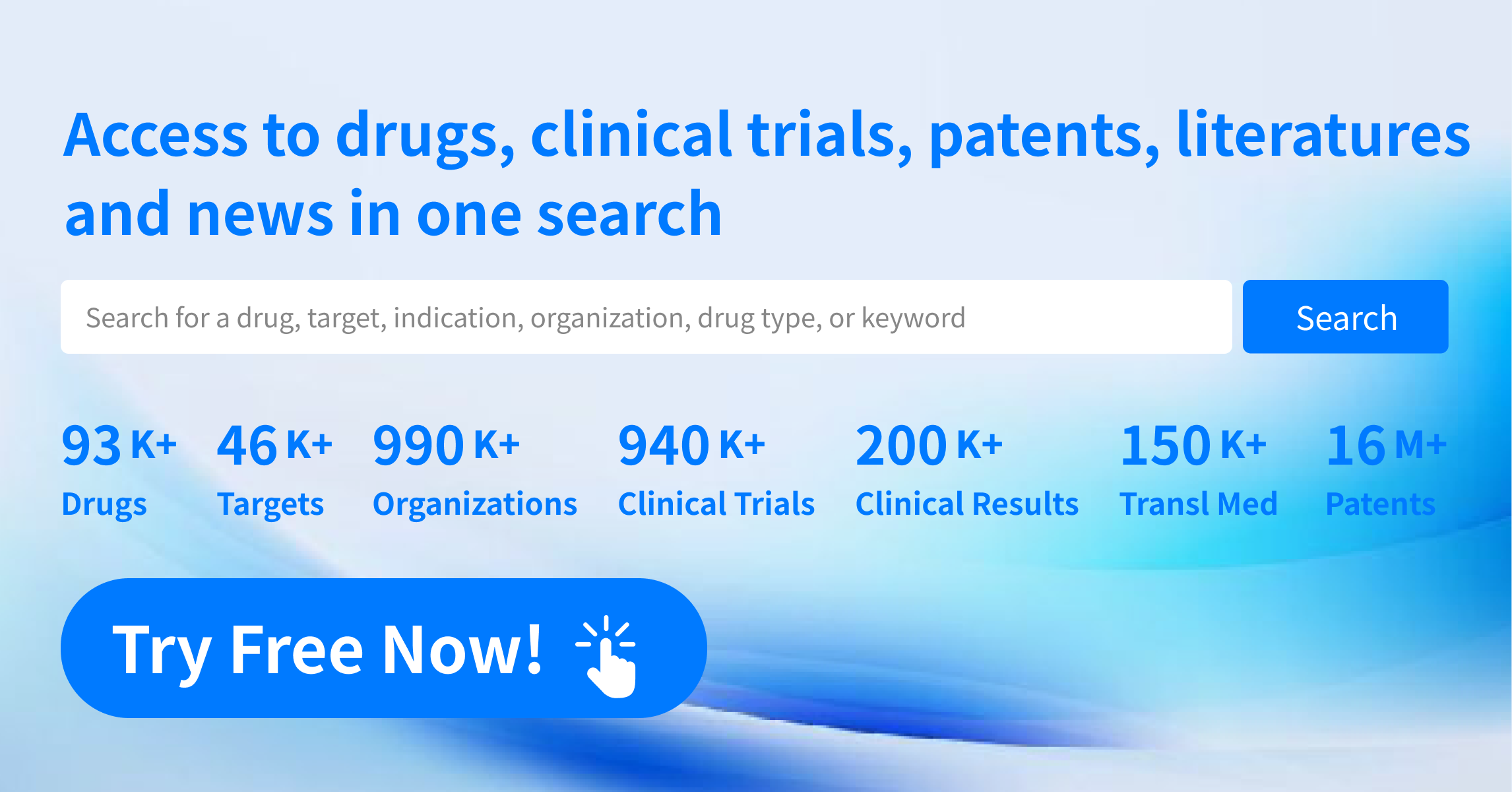Pharma Frontiers: Daily Digest of Global Pharmaceutical News – Aug 15
1.Imfinzi in combination with Lynparza approved in the EU for endometrial cancer treatment
On August 14th, AstraZeneca announced the approval in the European Union for the combination therapy of Imfinzi and Lynparza for the treatment of certain patients with primary advanced or recurrent endometrial cancer. For patients with mismatch repair function normal (pMMR), Imfinzi in combination with chemotherapy is used as first-line treatment, followed by combination with Lynparza as maintenance treatment; For those with mismatch repair function defects (dMMR), Imfinzi in combination with chemotherapy is also used as first-line treatment, followed by single use of Imfinzi as maintenance treatment. The approval by the EU Commission follows a positive opinion from the Committee for Medicinal Products for Human Use, and is based on the exploratory analysis results of the pre-specified mismatch repair (MMR) status subgroup in the phase III DUO-E study. DUO-E (GOG 3041/ENGOT-EN10) is a three-armed, randomized, double-blind, placebo-controlled, multi-centre phase III trial (n=699) targeting newly-diagnosed advanced or recurrent endometrial cancer patients. The trial, evaluating the efficacy and safety of Imfinzi (1120mg, once every three weeks) + platinum chemotherapy (carboplatin and paclitaxel) as a first-line treatment and the subsequent use of Imfinzi alone (1500mg, once every four weeks) or in combination with Lynparza (300mg, twice daily) as maintenance treatment, was independently funded by AstraZeneca and conducted in 253 research centres in 22 countries, including the United States, Europe, South America, and Asia. Dual primary endpoints were progression-free survival (PFS) for each treatment group compared to the standalone standard therapy group, with key secondary endpoints including overall survival (OS), safety, and tolerability. The study subgroup analysis based on mismatch repair (MMR) status, recurrence status, and geographical location showed that the PFS of the two treatment groups was statistically significantly and clinically meaningfully improved compared to the standard therapy group. The trial will continue the evaluation of the OS in the entire test population for the two treatment groups.
2.FDA Approves Galderma's Breakthrough Therapy IL-31 Receptor-Targeted Monoclonal Antibody Nemluvio
On August 13, Galderma announced that the U.S. FDA has approved its Interleukin-31 (IL-31) receptor-targeted monoclonal antibody, Nemluvio (nemolizumab), for the treatment of adult patients with Prurigo Nodularis. Results from previous Phase 3 trials showed that a rapid reduction in itching symptoms was observed in patients with Prurigo Nodularis as early as Week 4 of treatment with Nemluvio. According to a press release, Nemluvio is the first monoclonal antibody to be approved by the FDA to inhibit IL-31 signaling. Prurigo Nodularis is a neuro-immune dermatological condition. This chronic, debilitating disease is characterized by underlying type 2 inflammation and is one of the most impactful inflammatory skin conditions on quality of life. People with Prurigo Nodularis experience intense, persistent itching and widespread cutaneous thickening (nodules) and have poor sleep quality. Patients typically use high dose topical corticosteroids to relieve symptoms but these carry a risk of safety concerns if used long-term. IL-31 plays a critical role in the pathological mechanisms of many skin diseases, including atopic dermatitis and Prurigo Nodularis. As IL-31 can directly stimulate itch-associated sensory neurons, cause inflammation and impair skin barrier function, it has emerged as a "bridge" between the immune and nervous systems, and consequently, a target for the treatment of inflammatory skin diseases. This approval is primarily based on the positive results of the Phase 3 OLYMPIA program. According to a press release, this is one of the largest clinical trial programs to date for this disease. The OLYMPIA 1 and OLYMPIA 2 Phase 3 trials evaluated the efficacy and safety of subcutaneous injections of Nemluvio every four weeks in over 500 patients with Prurigo Nodularis.
3.RemeGen's innovative drug Telitacicept reaches the main endpoint in Phase III trial of severe myasthenia gravis
On August 13, RemeGen announced that the company's in-house developed BLyS/APRIL dual-target fusion protein innovative drug Telitacicept, used for the treatment of generalized Myasthenia Gravis (gMG), achieved the main research endpoint in the Phase III clinical study in China. RemeGen will submit a market application to the Drug Assessment Center (CDE) of the National Medical Products Administration of China at an appropriate time. Myasthenia Gravis (MG) is a rare, chronic autoimmune disease caused by self-antibodies directed against acetylcholine receptors, muscle-specific kinase or other acetylcholine receptor-associated proteins on the post-synaptic membrane. This could affect eye movement, swallowing, speech, activity, and respiratory function to varying degrees. About 85% of patients will have symptoms outside the ocular muscles, developing into generalized Myasthenia Gravis (gMG). Currently, there is no satisfactory treatment for severe myasthenia gravis, hence effective, precision, and safe targeted biologics have become a hotspot in myasthenia gravis drug research. In recent years, B-cell targeted therapy in myasthenia gravis has shown good therapeutic prospects, and it has been found that compared with traditional immunotherapy, B-cell targeted therapy can significantly reduce the relapse rate of severe myasthenia gravis with low rates of drug discontinuation. Telitacicept is a dual-target antibody fusion protein that can simultaneously target BLyS and APRIL, direct hit source of pathogenic antibody production —— B cells and plasma cells, thereby reducing the production of pathogenic antibodies and playing a therapeutic role. The main endpoint reached this time is a multicenter, randomized, double-blind, placebo-controlled phase III clinical study, aimed at evaluating the effectiveness and safety of Telitacicept in treating patients with generalized myasthenia gravis. The clinical research results show that Telitacicept can continuously and effectively improve the clinical condition of patients with generalized myasthenia gravis, showing good efficacy and safety.
4.Apollomics Announces Positive Phase 2 Clinical Results of c-MET Small Molecule Inhibitor for Cancer
On August 14, Apollomics announced positive preliminary clinical data from its c-MET small molecule inhibitor vebreltinib (APL-101) in the SPARTA Phase 2 trial for the treatment of non-central nervous system (CNS) MET fusion solid tumor patients. The key SPARTA trial announced is a global, multi-cohort, single-arm, open-label Phase 2 study designed to assess the efficacy and safety of vebreltinib in MET variant tumors. As of July 31, 2024, the study has included 14 non-CNS MET fusion solid tumor patients, consisting of six cases of non-small cell lung cancer (NSCLC), two cases of intrahepatic cholangiocarcinoma, as well as one case each of colon cancer, pancreatic cancer, breast cancer, head and neck cancer, esophageal cancer, and lung sarcomatoid carcinoma. The analysis revealed an objective response rate (ORR) of 43% according to RECIST v1.1 criteria. Of the 14 evaluable patients, six showed response, including a complete response in a third-line metastatic NSCLC patient, and partial responses in three NSCLC patients, one pancreatic cancer patient, and one intrahepatic cholangiocarcinoma patient. The median overall survival (OS) was 12.4 months, the median progression-free survival was 4.5 months, the median duration of response was 5.6 months, and the median time to response was 3.7 months. The longest duration of response was 18 months, with the patient currently continuing treatment. Vebreltinib is a potent, highly bioavailable, and selective oral c-MET small molecule inhibitor that works by competitively binding to the ATP site to obstruct tyrosine kinase phosphorylation, thereby inhibiting the abnormal activation of the HGF/c-MET signaling axis, a key pathway in tumor growth, proliferation, and resistance to certain targeted therapies (such as Osimertinib). Vebreltinib has demonstrated strong anti-tumoral effects in various preclinical human gastric, liver, pancreatic, and lung cancer xenograft models and patient-derived xenograft models (PDX) with disrupted c-MET.
5.Rivus Successfully Initiates Weight Reduction Research for Obesity-related Heart Failure Patients with its Novel Small Molecule HU6
On August 13, Rivus Pharmaceuticals announced that its novel small-molecule drug, HU6, reached its primary endpoint of weight reduction in a Phase IIa HuMAIN study among patients with Heart Failure with preserved ejection fraction (HFpEF) related to obesity. The data from the HuMAIN study will be presented at the Heart Failure Society of America (HFSA) annual meeting. HU6 is a potential first in class mitochondrial uncoupler, taken orally once daily, part of Rivus's Controlled Metabolic Accelerators (CMAs) treatment that aims to gently and safely help patients increase their resting metabolic rate, promoting sustained fat reduction whilst preserving muscle.
The HuMAIN (NCT05284617) is a randomized, double-blind, placebo-controlled, parallel group, dose escalating Phase IIa study designed to assess the safety, tolerability, pharmacokinetic and pharmacodynamic of escalating doses HU6 (150mg, 300mg, 450mg daily) in patients with obesity-related HFpEF.
The study enrolled 66 subjects (38 women and 28 men) aged ≥30 years old with a Body Mass Index (BMI) >30 kg/m2, who were randomly assigned to the HU6 and placebo groups, receiving once daily dosing for 134 days of treatment. The main endpoint of the study was weight loss (measured by the change in weight relative to baseline on day 134). Secondary endpoints include improvement in exercise ability, quality of life measurements, changes in body composition and cardiac function/structure, and assessment of markers of cardiac metabolic dysfunction (such as changes in blood pressure and pulse, glucose control, inflammation, blood lipid levels and liver enzymes). The HuMAIN study reached its primary endpoint and several secondary endpoints.The safety profile of HU6 was consistent with previous studies. HU6 demonstrated good tolerance and safety in a patient population with multiple co-morbidities and taking multiple co-administered drugs.
6.CAR-T Therapy Shows Potential in Treating Multiple Autoimmune Diseases
Kyverna Therapeutics recently released its Q2 2024 financial report and shared the latest clinical trial results of its flagship project, Chimeric Antigen Receptor (CAR)-T therapy KYV-101. Kyverna, a clinical-stage biopharmaceutical company, focuses on developing cell therapies for patients with autoimmune diseases. The company's leading research CAR-T cell therapy, KYV-101, is conducting multiple clinical trials in two broad areas of autoimmune diseases (rheumatology and neurology), including phase 2 trials for Multiple Sclerosis, Myasthenia Gravis, and Stiff-Person Syndrome, phase 1/2 trials for systemic sclerosis, and two multicenter, open-label phase 1/2 trials for lupus nephritis patients in the US and Germany. KYV-101 is an autologous CD19-targeted CAR-T therapy. The chimeric antigen receptor in KYV-101 is designed by the National Institutes of Health (NIH) to improve tolerance. This therapy was previously reviewed in a phase 1 trial with 20 patients with B-cell lymphoma, and analysis showed that 55% of patients achieved complete remission. Patients receiving this therapy had low levels of cytokines in the blood, and only 5% of patients developed severe nephrotoxicity. So far, 50 patients have received KYV-101 treatment, including 15 different autoimmune diseases. Extended safety studies of this therapy show that as of July 31, 2024, no severe immune effect cell-related neurotoxicity syndrome (ICANS) or grade 3 or higher cytokine release syndrome (CRS) was observed in 36 treated patients with autoimmune diseases. In addition, KYV-101 has also obtained Regenerative Medicine Advanced Therapy (RMAT) designation by the US FDA for the treatment of Stiff-Person Syndrome and Myasthenia Gravis patients. Notably, clinical disease symptoms disappeared in patients with Myasthenia Gravis a year after receiving KYV-101 treatment.
7.Lilly Launches Large-scale R&D Center in Boston
On August 13, Lilly officially opened its new R&D center in Boston, which cost $700 million to build. The R&D center is expected to accommodate 700 people, most of whom are scientists working on early trials of Lilly's genomedicines. It is reported that about two-thirds of the center's space will be dedicated to laboratory space, where researchers will study genomedicines related to diseases including diabetes, obesity, cardiovascular diseases, chronic pain, and neurodegenerative diseases such as Alzheimer's. Earlier this year, Lilly's biggest competitor, Novo Nordisk, also opened its own R&D center in Boston, focusing on genomedicines for diabetes and obesity with the aim of providing alternative or supplementary treatment options for its best-selling series of glucagon-like-peptide-1based therapies. Notably, the new R&D center also houses a startup incubator and accelerator space called "Lilly Gateway Labs," which can house 15 startups and 200 scientists. There are currently four biotech companies in residence: RNA-focused Amplitude Therapeutics and Tevard Biosciences, neuroinflammation-focused FireCyte Therapeutics, and Solu Therapeutics which pairs antibodies with bispecific small molecules. These companies are not part of Lilly, but they have close access to Lilly's scientists. Over the past few years, Lilly has been mapping out its genomedicine landscape by acquiring, investing in, and collaborating with small genomedicine companies. The company now owns a variety of genomedicine related drugs, including adeno-associated virus (AAV) gene therapies, CRISPR base editing, short-lived RNA editing, and more. In November 2020, Lilly prepaid $100 million to Precision BioSciences and invested an additional $35 million to collaborate on the development of three in vivo gene editing therapies. According to the agreement, Precision is responsible for preclinical research and IND research, while Lilly is responsible for subsequent clinical development and commercialization. The total amount of the collaboration reached a high of $2.6 billion.
8.Baxter Sells Core Business for $3.8 Billion
On August 13, Baxter announced it had reached an acquisition agreement with renowned global investment firm Carlyle, selling its nearly 70-year-old Kidney Care division for a total transaction amount of $3.8 billion. After certain deal adjustments, Baxter is expected to receive approximately $3.5 billion in cash, with estimated net proceeds currently pegged around $3 billion post-tax. The deal is anticipated to be complete by the end of 2024 or beginning of 2025. According to Baxter's financial statement, its total revenues were $14.813 billion for 2023, with kidney care accounting for $4.453 billion (30% of total revenues). In the first half of this year, the division's revenue was $2.22 billion. Baxter had previously suggested divestment of part of its kidney care business in September 2022. The company considered selling its Kidney Care and Hemodialysis units for a total of $1 billion. In 2023, Baxter reintroduced plans to spin off the Kidney Care department, aiming to establish an independent kidney care company as part of its wider strategic adjustments, designed to improve future performance and create value for all stakeholders. Subsequently, Baxter renamed the business unit Vantive, appointed Chris Toth as CEO, and planned an independent public listing. In March this year, Baxter indicated it might abandon the IPO plans for Vantive and instead chose to sell it off. Upon completion of the sell-off, Baxter aims to achieve 4%-5% annual operational sales growth, with operating profit margins approximately 16.5% by 2025. Baxter will continue to prioritize capital allocation, aiming to target investments towards higher growth and greater returns to drive business performance growth. Accordingly, Baxter will remain focused on leveraging and is projected to reach the investment-grade goal of below 3.0 times by the end of 2025. Prior to the Kidney Care spin-off, Baxter had undergone one divisional disposal. In May 2023, Baxter sold the Biopharmaceutical Solutions (BPS) business to Warburg Pincus and Advent International for a total transaction amount of $4.25 billion.
How to obtain the latest research advancements in the field of biopharmaceuticals?
In the Synapse database, you can keep abreast of the latest research and development advances in drugs, targets, indications, organizations, etc., anywhere and anytime, on a daily or weekly basis. Click on the image below to embark on a brand new journey of drug discovery!




